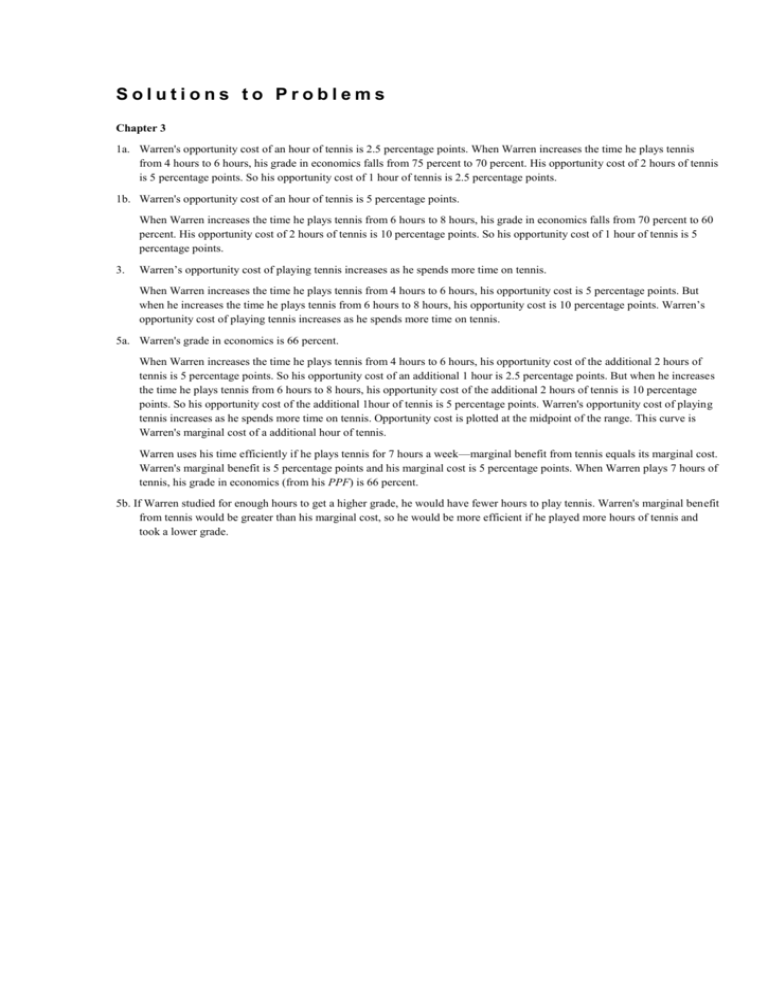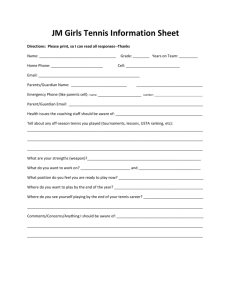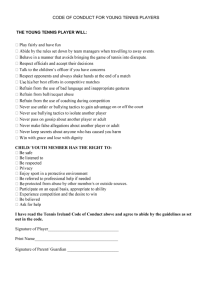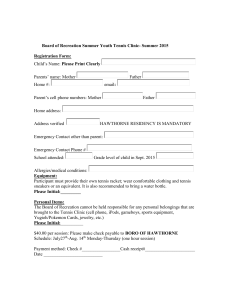Efficiency and Economic Growth
advertisement

Solutions to Problems Chapter 3 1a. Warren's opportunity cost of an hour of tennis is 2.5 percentage points. When Warren increases the time he plays tennis from 4 hours to 6 hours, his grade in economics falls from 75 percent to 70 percent. His opportunity cost of 2 hours of tennis is 5 percentage points. So his opportunity cost of 1 hour of tennis is 2.5 percentage points. 1b. Warren's opportunity cost of an hour of tennis is 5 percentage points. When Warren increases the time he plays tennis from 6 hours to 8 hours, his grade in economics falls from 70 percent to 60 percent. His opportunity cost of 2 hours of tennis is 10 percentage points. So his opportunity cost of 1 hour of tennis is 5 percentage points. 3. Warren’s opportunity cost of playing tennis increases as he spends more time on tennis. When Warren increases the time he plays tennis from 4 hours to 6 hours, his opportunity cost is 5 percentage points. But when he increases the time he plays tennis from 6 hours to 8 hours, his opportunity cost is 10 percentage points. Warren’s opportunity cost of playing tennis increases as he spends more time on tennis. 5a. Warren's grade in economics is 66 percent. When Warren increases the time he plays tennis from 4 hours to 6 hours, his opportunity cost of the additional 2 hours of tennis is 5 percentage points. So his opportunity cost of an additional 1 hour is 2.5 percentage points. But when he increases the time he plays tennis from 6 hours to 8 hours, his opportunity cost of the additional 2 hours of tennis is 10 percentage points. So his opportunity cost of the additional 1hour of tennis is 5 percentage points. Warren's opportunity cost of playing tennis increases as he spends more time on tennis. Opportunity cost is plotted at the midpoint of the range. This curve is Warren's marginal cost of a additional hour of tennis. Warren uses his time efficiently if he plays tennis for 7 hours a week—marginal benefit from tennis equals its marginal cost. Warren's marginal benefit is 5 percentage points and his marginal cost is 5 percentage points. When Warren plays 7 hours of tennis, his grade in economics (from his PPF) is 66 percent. 5b. If Warren studied for enough hours to get a higher grade, he would have fewer hours to play tennis. Warren's marginal benefit from tennis would be greater than his marginal cost, so he would be more efficient if he played more hours of tennis and took a lower grade.






